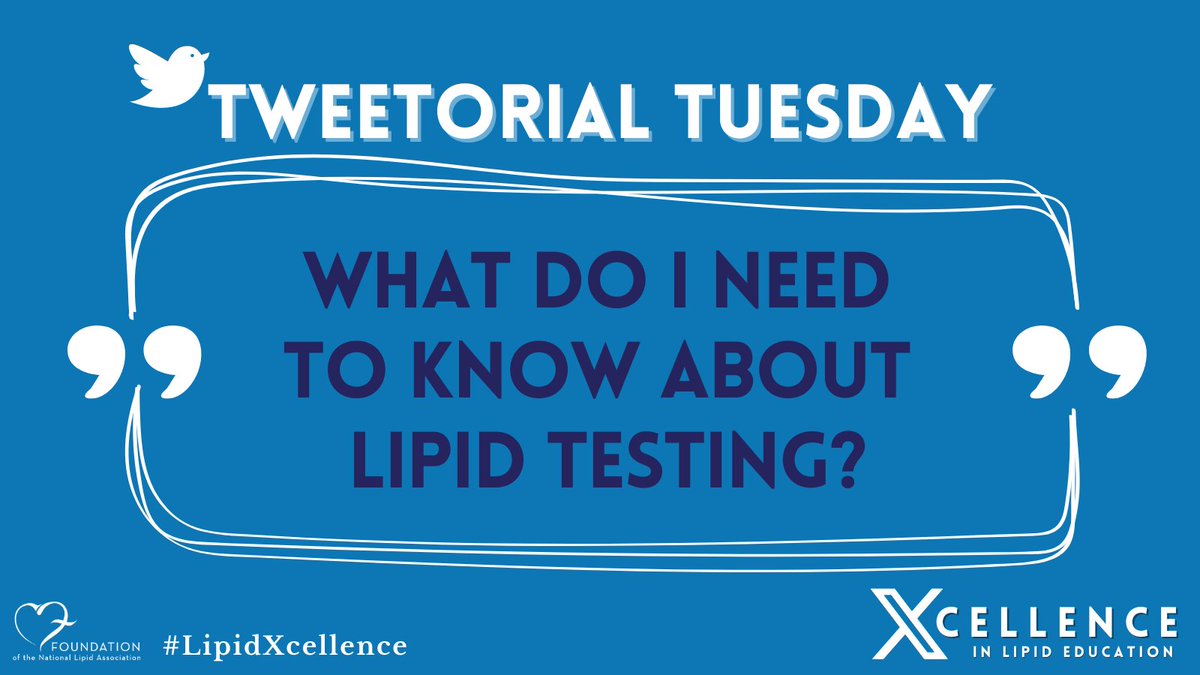We are happy to support @nationallipid for National #CholesterolEducationMonth with this week's Tuesday Tweetorial featuring key info you should know about your lipids & lipid testing - the what, who, when, where, & why. Read it now! Thanks @nationallipid! #LipidXcellence

What are lipids? “Lipids” refer to “fats” normally found in the blood. While a normal amount of fat in the blood helps your body function properly and promotes health and well-being, high levels can cause health problems such as heart attack and stroke.
What is a lipid panel? A “lipid panel” is a measure of the amount of fat in your blood. Blood contains more than one type of fat. The typical lipid panel measures two main types of fat in the blood, cholesterol and triglycerides.
Some major measurements include: Total cholesterol: the total amount of cholesterol in the blood. LDL-C: cholesterol contained in low-density lipoprotein (LDL). LDL can build up in your blood vessels, leading to blockage of blood flow to organs such as the heart.
And: HDL-C: cholesterol contained in high-density lipoprotein (HDL). HDL helps the body get rid of excess cholesterol that may otherwise collect in blood vessels. Triglycerides - a type of fat found in the blood that provides energy fuel to the body.
Your provider may also measure: Lp(a): a genetic lipid marker. High level is a predictor of risk for heart attack/stroke ApoB: protein found in LDL particle. High level is a predictor of risk for heart attack/stroke
How often should I have a lipid panel? Adults over the age of 20 should measure their lipids at least once every 5 years Children should be screened between 9-11 years old & again between 17-20 years old.
However! Your healthcare team may recommend more frequent tests if you or your child are at increased risk for heart disease, stroke, or other complications.
My tests results are poor, what's next? Consult w/ your primary provider about your results. Lifestyle changes & medication may be needed. If you aren't able to lower your LDL-C adequately w/ lifestyle changes & medications like statins, it is important to see a lipid specialist
What resources can I access? We have an awesome resource on interpreting lipid panels: If you are looking for a lipid specialist in your area, visit our clinician locator: #LipidXcellence #CholesterolEducation #CholesterolMonth
